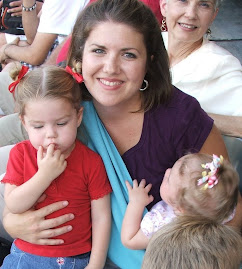Nursing toddlers benefit NUTRITIONALLY
- Although there has been little research done on children who breastfeed beyond the age of two, the available information indicates that breastfeeding continues to be a valuable source of nutrition and disease protection for as long as breastfeeding continues.
- "Human milk expressed by mothers who have been lactating for >1 year has significantly increased fat and energy contents, compared with milk expressed by women who have been lactating for shorter periods. During prolonged lactation, the fat energy contribution of breast milk to the infant diet might be significant."
-- Mandel 2005
- "Breast milk continues to provide substantial amounts of key nutrients well beyond the first year of life, especially protein, fat, and most vitamins."
-- Dewey 2001
- In the second year (12-23 months), 448 mL of breastmilk provides:
- 29% of energy requirements
- 43% of protein requirements
- 36% of calcium requirements
- 75% of vitamin A requirements
- 76% of folate requirements
- 94% of vitamin B12 requirements
- 60% of vitamin C requirements
- Studies done in rural Bangladesh have shown that breastmilk continues to be an important source of vitamin A in the second and third year of life.
-- Persson 1998
- Many studies have shown that one of the best ways to prevent allergies and asthma is to breastfeed exclusively for at least 6 months and continue breastfeeding long-term after that point.
Breastfeeding can be helpful for preventing allergy by:- reducing exposure to potential allergens (the later baby is exposed, the less likely that there will be an allergic reaction),
- speeding maturation of the protective intestinal barrier in baby's gut,
- coating the gut and providing a barrier to potentially allergenic molecules,
- providing anti-inflammatory properties that reduce the risk of infections (which can act as allergy triggers).
Extensive research on the relationship between cognitive achievement (IQ scores, grades in school) and breastfeeding has shown the greatest gains for those children breastfed the longest.
Nursing toddlers are WELL ADJUSTED SOCIALLY
- According to Sally Kneidel in "Nursing Beyond One Year" (New Beginnings, Vol. 6 No. 4, July-August 1990, pp. 99-103.):
"Research reports on the psychological aspects of nursing are scarce. One study that dealt specifically with babies nursed longer than a year showed a significant link between the duration of nursing and mothers' and teachers' ratings of social adjustment in six- to eight-year-old children (Ferguson et al, 1987). In the words of the researchers, 'There are statistically significant tendencies for conduct disorder scores to decline with increasing duration of breastfeeding.'"
- According to Elizabeth N. Baldwin, Esq. in "Extended Breastfeeding and the Law":
"Breastfeeding is a warm and loving way to meet the needs of toddlers and young children. It not only perks them up and energizes them; it also soothes the frustrations, bumps and bruises, and daily stresses of early childhood. In addition, nursing past infancy helps little ones make a gradual transition to childhood."
- Baldwin continues: "Meeting a child's dependency needs is the key to helping that child achieve independence. And children outgrow these needs according to their own unique timetable." Children who achieve independence at their own pace are more secure in that independence then children forced into independence prematurely.
- The American Academy of Pediatrics recommends that "Breastfeeding should be continued for at least the first year of life and beyond for as long as mutually desired by mother and child... Increased duration of breastfeeding confers significant health and developmental benefits for the child and the mother... There is no upper limit to the duration of breastfeeding and no evidence of psychologic or developmental harm from breastfeeding into the third year of life or longer." (AAP 2005)
- The American Academy of Family Physicians recommends that breastfeeding continue throughout the first year of life and that "Breastfeeding beyond the first year offers considerable benefits to both mother and child, and should continue as long as mutually desired." They also note that "If the child is younger than two years of age, the child is at increased risk of illness if weaned." (AAFP 2001)
- A US Surgeon General has stated that it is a lucky baby who continues to nurse until age two. (Novello 1990)
- The World Health Organization emphasizes the importance of nursing up to two years of age or beyond (WHO 1992, WHO 2002).
- Scientific research by Katherine A. Dettwyler, PhD shows that 2.5 to 7.0 years of nursing is what our children have been designed to expect (Dettwyler 1995).
- Extended nursing delays the return of fertility in some women by suppressing ovulation (References).
- Breastfeeding reduces the risk of breast cancer (References). Studies have found a significant inverse association between duration of lactation and breast cancer risk.
- Breastfeeding reduces the risk of ovarian cancer (References).
- Breastfeeding reduces the risk of uterine cancer (References).
- Breastfeeding reduces the risk of endometrial cancer (References).
- Breastfeeding protects against osteoporosis. During lactation a mother may experience decreases of bone mineral. A nursing mom's bone mineral density may be reduced in the whole body by 1 to 2 percent while she is still nursing. This is gained back, and bone mineral density may actually increase, when the baby is weaned from the breast. This is not dependent on additional calcium supplementation in the mother's diet. (References).
- Breastfeeding reduces the risk of rheumatoid arthritis. (References).
- Breastfeeding has been shown to decrease insulin requirements in diabetic women (References).
- Breastfeeding moms tend to lose weight easier






3 comments:
Awesome article! I enjoy nursing my 15 month old most days. I just need to figure out how to get more calories so that I don't feel drained after an all night nursing session.
This post is awesome! I learned so much. Definitely linking to it!
Excellent website, Generic Viagra congrats for this brilliant blog lady, and also I will visit it often if you don't main.
Buy Viagra Cheap Viagra
Post a Comment